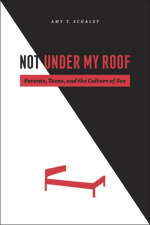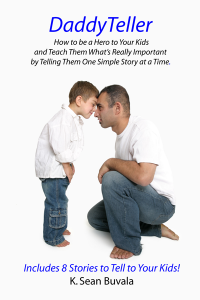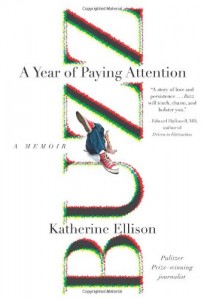|
|
November 16, 2011
For the past 14 years I’ve received email from t(w)eens around the world. 80% of them fictitiously sign their letters “Confused.” They’re confused about a whole lot of stuff, especially sex. It’s cool that they use their confusion as a motivator to ask questions of an adult (by most measures, that would be me). Otherwise, how are they going to understand what they need to know so they can make good choices?
Here’s one that came in last week from a young teen:
If a male only sticks the tip of his penis into a girls vagina, is it considered “having sex”?
The next day this one arrived:
I was walking with my partner and as a tease he held my leg from the top and I think his hand hit near my vaginal hole but he didn’t put his finger straight in and I moved. It was literally one second but I had my trousers on and it was just whilst I was walking. Any chance I can get pregnant with that? I’m very young and scared.
 Required reading for 21st Century Parents Don’t let their ignorance of mechanics distract you from the bigger picture: Too many t(w)eens seem to view sexual contact as a casual activity with no serious relationship or emotional closeness required. I fear those kids will have trouble developing bonds of real intimacy.
Last week’s Glee episode featured two in-love high school couples (one gay, one straight – all four teens were 12th graders), crossing the threshold in their long-term relationship and choosing to have sex for “The First Time.” Kudos to the writers for showing us characters sensitive to each other’s needs. Rarely on TV or in films do we see teens willing to put so much careful thought into decisions having to do with sex.
It got me thinking how American teens might make different choices if they had more role models for talking about sex with their partners… or even with their parents.
I know it sounds totally crazy to imagine teens having real conversations with their parents about serious relationships, but after reading Amy Schalet’s new book Not Under My Roof: Parents, Teens and the Culture of Sex I learned the American way isn’t the only way. If we can agree the goal is to prevent teen pregnancy and to help older teens “navigate the challenges of sexuality and first relationships” then, generally speaking, American parents and educators are doing a lousy job.
As Schalet’s book thoroughly documents, Dutch parents have a more open attitude about sex education which results in Dutch teens having less casual sex and far fewer pregnancies. They also sneak around less and experience much less alienation from their parents during these years. Wow! I didn’t know there was an alternative to teen alienation. My view is tainted by emails from teens who don’t like lying to their parents and aren’t particularly enjoying random hook-ups or “friends with benefits” arrangements. Bottom line, they don’t seem to be having all that much fun doing the stuff they’re sneaking off to do and yet, they’re doing it anyway and not necessarily learning anything positive.
I was eager to talk to the Amy about Not Under My Roof. We had a great conversation which included many eye-openers. Check this out: When asked about their first sexual experience, a majority of American girls said: “I wish I had waited longer.” That indicates regret for whatever reason. There’s also a possibility that the girls felt pressured to have sex when they didn’t really want to. When Dutch girls were asked a similar question, 85% said: “We both wanted it. We chose it.”
Very interesting.
Here are my big takeaways from my conversation with Amy Schalet, “One narrative doesn’t fit all.” When we give our teens only one message we:
- Fail to give them the education/guidance/space they need to make responsible choices about their own sexual behavior.
- Build unnecessary walls between us and our kids based on deception and distrust and the false assumption that we can control their behavior.
- Prevent them from a basic understanding of what it means to “be ready” to have sex. This is something only the individual can determine but the parent can help with these guidelines:
- the partner is trustworthy
- the time you’ve had in the relationship thus far
- you and your partner have talked about having sex and what crossing that threshold means to each of you
- you both want to have sex
- you understand it will change the relationship. You’ve thought about and talked about how might it change your feelings for each other. How might it also change your expectations, your behavior, your agreements?
Some of you may feel that teen sex is never ok. If so, then you’re in agreement with the American cultural narrative of “Just don’t do it.” Even if that is your perspective, the teens in your life will still benefit from your talking with them about sex and relationships. They’ll also appreciate your listening to what they have to say. They need to hear your values because by 19 years of age, 70% of young people have had sex. That’s reality. Since that’s where they’re going, you want them making conscious, healthy choices.
btw, in addition to reading Amy’s book, you might also want to check out my interview on FoxNews.com where I talk about Teen Sex in the Family Home.

June 28, 2011
Because I write for kids about social and emotional learning I spend a fair amount of time in schools presenting to students, teachers and parents. My perception of any school is only a snapshot, but it’s often revealing and well… educational.
Over the years I’ve had the privilege of meeting and observing many many wonderful administrators, counselors and teachers. These men and women are highly effective educators and leaders, as well as compassionate human beings and beloved mentors. Each is a special gift to their students but it’s a gift all students deserve.
In my travels I’ve also encountered those who seriously have no business working with kids. A middle school coach who screams like a Marine drill sergeant. A teacher who sarcastically greets a specialist with: “Thank god you’re here. JOEY! GO!! Take him!” A school secretary who viciously brow-beats a timid group of late-arriving students.
Once, during a professional training I led (for which all teachers were paid to attend) one teacher continuously texted, one slept, and another graded papers never once looking up or participating in a lively discussion on how to encourage students to be more respectful in class.
When I encounter folks like these I wonder, Why are these people permitted to teach? Everyone knows who the “bad” teachers in any school are and yet year after year their principals agree to let them continue damaging children. Why?! How do the bad teacher’s students and their parents feel about the sentence they’re serving in that class? What, if any, are their rights? How does having a bad teacher as a colleague makes the good teachers at the school feel?
 A book that can change American public education John Merrow, author of The Influence of Teachers: Reflections on Teaching and Leadership, has also wondered and researched and documented these issues and others. The result is the best book about education I’ve ever read. Merrow has been covering the field for NPR and PBS since 1974 and is currently Education Correspondent for PBS NewsHour and President of Learning Matters, Inc., an independent production company in New York City.
I love books that make me think in new ways. I especially appreciate those that shine a well-informed light on the political and social dynamics of institutions that affect children. Merrow knows the situation in American public schools. He’s taken the time to interview district-wide stake-holders in many communities. He finds too many public and charter schools damaging the kids they ought to be committed to serve. In light of the ongoing national conversation on school reform, this isn’t a surprise. What is surprising is how directly Merrow defines the problem and calls out those most responsible for perpetuating a broken system. The way he sees it, leadership is key and that key has been missing for too long at the district, school and classroom levels.
If you’re lucky enough to be satisfied with your kids’ schools you might think, “Yeah, that’s a shame, but it’s not my problem.” Of course it is. Kids coming out of under-functioning schools are heading toward an adulthood with few bright options and many frustrations. Cheated by their schools, they’re turned out into society under-educated and lacking the ability to think critically. With what they’ve been given, they can’t succeed. In a nation that claims “Our children are our greatest resource” that is nothing short of criminal.
I urge you to read The Influence of Teachers. Encourage parents, teachers, administrators, superintendents to do the same. Come armed with it to the fall’s first PTO meeting. Get real about what’s broken in your school. Use John Merrow’s strong recommendations and work together. We’ve got to do this for our kids. If not, they can rightly assume we don’t care all that much about them or the country’s future.
UPDATE: Exciting news! A new teacher training bill was introduced in the Senate on Wednesday. It’s called Crowing Excellent Achievement Training Academies for Teachers and Principals. Read more.

December 6, 2010
 "DaddyTeller: How to be a Hero to Your Kids and Teach Them What's Really Important By Telling Them One Simple Story at a Time" by K. Sean Buvala Today’s guest is K. Sean Buvala, professional storyteller. This guy’s good. How good? Well, in 2007 he won the annual Oracle Award by the National Storytelling Network for his work in the promotion of storytelling, including the development of storyteller.net, an online goldmine of resources for storytellers of all stripes and their audiences. So yeah, that’s how good!
Sean is the father of four beautiful daughters. That kinda sounds like the beginning of a story, doesn’t it? Sean is also the author of DaddyTeller: How to be a Hero to Your Kid and Teach Them What’s Really Important by Telling them One Simple Story At a Time.
According to Sean, the average dad spends “less than 30 minutes a day with his kids.” That’s not good. I know, I know, parents are busy. Apparently so are kids. On average our children spend four hours a day focused on TV, Internet and/or video games. That’s an awful lot of influence being pumped into them from… who knows where? If fathers want more of a hand in shaping the values and character of their kids… short of becoming stay-at-home dads, what can they do it? Great question! Stick around. We’ve got answers.
Listen to my conversation with Sean Buvala right here:
[QUICKTIME http://www.anniefox.com/podcast/FC023.m4a 300 300 false true]
If you have iTunes, you can subscribe to this podcast in the iTunes Store.
Or, you can download an MP3 version here.
Upcoming guests include:
Rachel Simon, author of Riding The Bus With My Sister and The House on Teacher’s Lane
Dr. Karyn Purvis, co-author (with Dr. David Cross, Wendy Lyons Sunshine) of The Connected Child: Bring hope and healing to your adoptive family
Judith Warner, author of Perfect Madness: Motherhood in the Age of Anxiety and We’ve Got Issues: Children and Parents in the Age of Medication

November 9, 2010
 "Buzz: A Year of Paying Attention" by Katherine Ellison Today’s guest is Pulitzer Prize-winning investigative journalist Katherine Ellison. A veteran foreign correspondent and writing consultant, Katherine is also the mother of two sons and the author of four books including The Mommy Brain: How Motherhood Makes Us Smarter and her new memoir Buzz: A Year of Paying Attention.
Katherine Ellison gives all she’s got to every professional assignment. (You don’t win a Pulitzer Prize for phoning it in!) One day, she was driving on the freeway, late for a meeting with a new client, when her 12 year old son, Buzz, who’s got ADHD, had yet another major melt-down. Katherine’s 60-mile per hour response was equally over the top. That’s when she decided it was time to put on the brakes, back-burner all other career plans and spend a year paying attention to Buzz and his diagnosis while chronicling her findings and her feelings. In the process she discovered that she too has ADHD (which explained so much about the challenges she’s faced as a journalist and a mom).
Katherine diligently researched and investigated a wide range of ADHD treatments currently available to exhausted, loving parents like herself . For millions of Moms and Dads around the country and abroad who want desperately to help their children with attention deficit disorders find ways to get more control over their behavior so they can be happier and more successful in the classroom and beyond, her book is a welcome and much-needed resource.
If you or someone you care about has a child dealing with ADD/ADHD, you don’t want to miss this interview.
Listen to my conversation with Katherine Ellison right here:
[QUICKTIME http://www.anniefox.com/podcast/FC022.m4a 300 300 false true]
If you have iTunes, you can subscribe to this podcast in the iTunes Store.
Or, you can download an MP3 version here.
Upcoming guests include:
Sean Buvala, author of DaddyTeller: How to be a Hero to Your Kids and Teach Them What’s Really Important By Telling Them One Simple Story at a Time
Dr. Karyn Purvis, co-author (with Dr. David Cross, Wendy Lyons Sunshine) of The Connected Child: Bring hope and healing to your adoptive family
Judith Warner, author of Perfect Madness: Motherhood in the Age of Anxiety and We’ve Got Issues: Children and Parents in the Age of Medication
Rachel Simon, author of Riding The Bus With My Sister and The House on Teacher’s Lane
 — Older Posts »
| |















